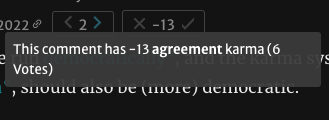Does a food carbon tax increase animal deaths and/or the total time of suffering of cows, pigs, chickens, and fish? Theoretically, this is possible, as a carbon tax could lead consumers to substitute, for example, beef with chicken. However, this is not per se the case, as animal products are not perfect substitutes.
I'm presenting the results of my master's thesis in Environmental Economics, which I re-worked and published on SSRN as a pre-print. My thesis develops a model of animal product substitution after a carbon tax, slaughter tax, and a meat tax. When I calibrate[1] this model for the U.S., there is a decrease in animal deaths and duration of suffering following a carbon tax. This suggests that a carbon tax can reduce animal suffering.
Key points
* Some animal products are carbon-intensive, like beef, but causes relatively few animal deaths or total time of suffering because the animals are large. Other animal products, like chicken, causes relatively many animal deaths or total time of suffering because the animals are small, but cause relatively low greenhouse gas emissions.
* A carbon tax will make some animal products, like beef, much more expensive. As a result, people may buy more chicken. This would increase animal suffering, assuming that farm animals suffer. However, this is not per se the case. It is also possible that the direct negative effect of a carbon tax on chicken consumption is stronger than the indirect (positive) substitution effect from carbon-intensive products to chicken.
* I developed a non-linear market model to predict the consumption of different animal products after a tax, based on own-price and cross-price elasticities.
* When calibrated for the United States, this model predicts a decrease in the consumption of all animal products considered (beef, chicken, pork, and farmed fish). Therefore, the modelled carbon tax is actually good for animal welfare, assuming that animals live net-negative lives.
* A slaughter tax (a









Giving What We Can should be framed as the way for people to be engaged in the community without necessarily needing to change their jobs/make it their identity.
Thanks Jack! There is often a tight connection between churches and traditional charity models which can be hard to crack. Some of the big NGOs they are often closely connected have a christian heritage, like World Vision, Tear Fund and Feed the Hungry. Unfortnately in my opinion these are some of the lowest value, inefficient NGOs around.
Often churches also have their own giving systems through their church which might make them hesitant to invite others in, especially when the others aren't religious. Conferences and meetings would be the forum for... (read more)